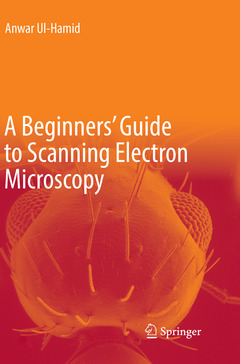Description
A Beginners' Guide to Scanning Electron Microscopy, Softcover reprint of the original 1st ed. 2018
Author: Ul-Hamid Anwar
Language: English
Subject for A Beginners' Guide to Scanning Electron Microscopy:
Approximative price 147.69 €
In Print (Delivery period: 15 days).
Add to cartPublication date: 01-2019
Support: Print on demand
Approximative price 147.69 €
In Print (Delivery period: 15 days).
Add to cartPublication date: 11-2018
Support: Print on demand
Description
/li>Contents
/li>Biography
/li>Comment
/li>
- provides a concise and accessible introduction to the essentials of SEM
- includes a large number of illustrations specifically chosen to aid readers' understanding of key concepts
- highlights recent advances in instrumentation, imaging and sample preparation techniques
- offers examples drawn from a variety of applications that appeal to professionals from diverse backgrounds.
Provides a concise and accessible introduction to the essentials of SEM
Includes a large number of illustrations specifically chosen to aid readers' understanding of key concepts
Highlights recent advances in instrumentation, imaging and sample preparation techniques
Offers examples drawn from a variety of applications that appeal to professionals from diverse backgrounds



